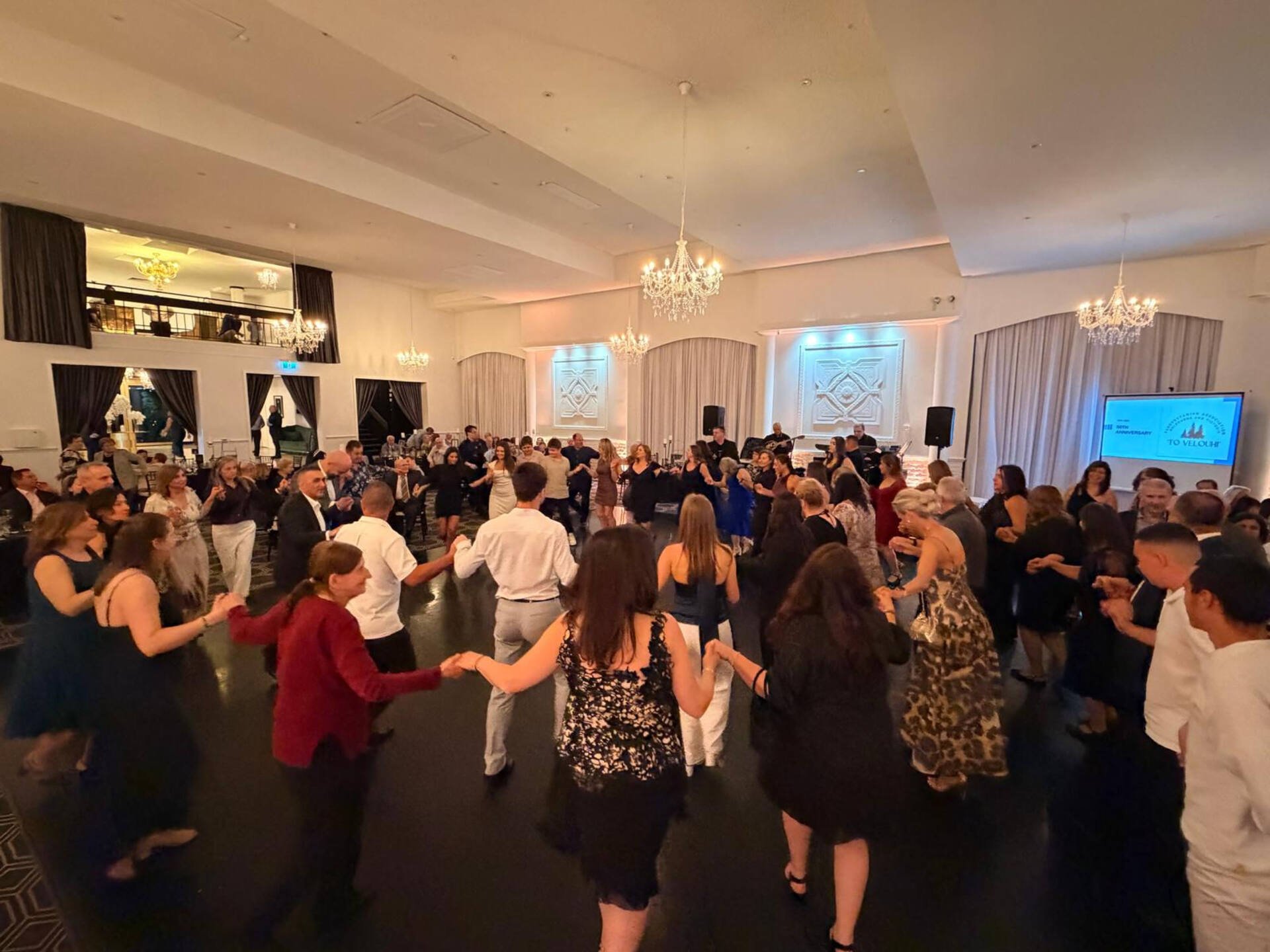A great loss for us all – the death of Dionysis Savvopoulos
Source: NEOS KOSMOS
Dionysis Savvopoulos, the beloved “Nionios” and one of Greece’s greatest musical legends, has passed away at the age of 81. The renowned singer-songwriter had been hospitalised in a private clinic over the past few days.
Dionysis Savvopoulos was one of the major shapers of modern Greek art. A composer, lyricist, and pioneer of Greece’s singer-songwriter movement, he defined an entire generation and created a “school” of his own through his inventive and subversive lyrics, his fusion of musical traditions, and his inspired productions. With his creative presence, Savvopoulos profoundly influenced every current and trend in Greek music.
According to a post by his family on Facebook: “Our beloved husband, father, grandfather, and songwriter passed away on Tuesday, 21 October 2025. Details of the farewell ceremony will be announced in the coming hours. His wife: Aspa. His children: Kornilios, Romanos, and Angela. His grandchildren: Dionysis and Andreas.”
Born in Thessaloniki on 2 December 1944, with roots from Constantinople and Plovdiv, Savvopoulos was exposed from a young age to Eastern cultural influences. As he grew older, he enrolled in the Law School of the University of Thessaloniki, but soon realised it neither fulfilled nor expressed him. In 1963, he told his parents he would abandon his studies to pursue music seriously, moving to Athens soon after. He achieved success almost immediately, becoming popular in Greece and abroad.
In 1963, he first presented songs he both wrote and composed himself. His music marked a turning point in Greek song, reviving and reshaping an ancient form that had previously lacked classification, synchronising the feeling of Greek traditional songwriting with contemporary global music trends. His performances and orchestrations remain unique and unsurpassed. Songs like To Fortigo (The Truck), To Perivoli tou Trellou (The Fool’s Garden), Ballos, Vromiko Psomi (Dirty Bread), Rezerva, and Trapezakia Exo (Tables Outside) have endured the test of time, remaining fresh and relevant.
Savvopoulos also directed his own stage performances from the beginning of his career, turning them into reference points for their theatricality and unconventional venues. He often transformed non-traditional spaces into musical stages according to his vision.
Historic moments include his 1983 concert at the Athens Olympic Stadium, which later hosted the 2004 Olympic Games ceremonies and his 2017 performance at the Panathenaic Stadium (Kallimarmaro), attended by 60,000 people. His songs are still performed by fellow artists, taught in Greek schools, and studied academically. His lyrics have even been translated and taught in Italian at the University of Rome’s Sapienza.
A self-taught and gifted creator, extraordinary performer, and storyteller, Savvopoulos released 14 albums and several live recordings. His work was distributed internationally wherever Greeks lived. He travelled extensively and composed music for theatre—including for the ancient stage of Epidaurus—and for cinema, winning a Best Music Award in 1976 for Happy Day, which he famously declined to accept. He also produced albums for younger artists, published five books of lyrics, scores, and essays, and released a collected edition of his lyrics in 2003. Two biographies of him were also published, by Kostas Bliatkas and Dimitris Karabelas. Over the years, he hosted radio and television programs, including Zito to Elliniko Tragoudi (“Long Live the Greek Song”).

In his 2017 speech at Aristotle University of Thessaloniki, where he was awarded an honorary doctorate, he recalled his birth during the Dekemvriana of 1944, describing how an ELAS fighter on a motorcycle rushed his mother to the hospital. He spoke about how, as a toddler, he first experienced “the music of words” before understanding their meaning:
“The music of words visited me before the words themselves. I didn’t yet understand meaning, only sound. I never wrote lyrics without music, nor do I know how. I compose words and music almost simultaneously, the rhythm always comes first. If there is poetry in what I do, it lies not just in the words, but in the song as a whole.”
From his early works Fortigo and Perivoli tou Trellou, Savvopoulos stood out for his deeply personal, original style, reinventing Greek music both lyrically and musically. His 1971 album Ballos featured the iconic 18-minute title track; his 1972 album Dirty Bread included classics such as Mavri Thalassa (Black Sea), Zeibekiko, Demoshenous Lexis, Elsa Se Fovamai (Elsa, I Fear You), and Angelos Exangelos, his Greek adaptation of Bob Dylan’s The Wicked Messenger.
In 1983, celebrating 20 years in Greek music, Savvopoulos turned the Olympic Stadium into a concert venue for 20 Years on the Road, drawing over 150,000 attendees. That same year, he released Trapezakia Exo (Tables Outside), featuring timeless songs such as As Kratisoun oi Horoi (Let the Dances Last).
In 1997, he once again shook up the Greek scene with the album To Xenodoheio (The Hotel), a tribute to the great artists who inspired him: Bob Dylan, Lucio Dalla, Nick Cave, Lou Reed, Van Morrison, Cream, Jethro Tull, Spencer Davis Group, Talking Heads, and Quicksilver Messenger Service. The album included 12 tracks featuring an “All-Star” band: Giannis Spathas, Stavros Lantsias, Giotis Kiourtsoglou, and guest singers such as Vassilis Papakonstantinou, Orfeas Peridis, Alkinoos Ioannidis, Nikos Portokaloglou, Argyris Bakirtzis, Eleni Tsaligopoulou, Lavrentis Machairitsas, and Dionysis Tsaknis.
Savvopoulos also composed music for Aristophanes’ Ploutos (Wealth) for the National Theatre’s 1985 production at Epidaurus, directed by Luca Ronconi, and returned to the play in 2013 as both director and lead actor, with a new translation of his own.
Politically active throughout his life, he was imprisoned twice during the Greek junta of 1967 for his political beliefs. “I spent a long time in a cell,” he said. “But a light inside me kept writing songs. Demoshenous Lexis was written there. I used Demosthenes’ name later to trick the censors. I fooled them completely!”
In 2024, he published Giati ta Chronia Trechoun (“Because the Years Fly”), an autobiography marking his 80th birthday, tracing his journey from troubadour of the youth to a national bard. Reflecting on his persona, he wrote: “What we call ‘Savvopoulos’ doesn’t really exist. Savvopoulos is a role I slowly created over the years, the man with the round glasses, the braces, the beard, who appears on stage and tells stories. That’s ‘Savvo,’ as my late friend Tasos Falireas called me. He’s another self. I often hide within him. He’s mine, without me, he’d be just empty air.”
“Now I need him again, as I grow old, to see how I was as a boy, as a professional, as a husband, father, and grandfather and as a citizen, friend, and son. In these, Savvo is good.”
In 2025, Greece marked 50 years since the airing of the landmark EIRT documentary “Nice to Meet You, Savvopoulos”, directed by Lakis Papastathis and produced by Cinetic. Rediscovered and restored in early 2025 by Elias Giannakakis and the ERT Archive, it was screened at the Benaki Museum on 14 May 2025 in the artist’s presence.
He was married to Aspa Arapidou, with whom he had two sons, Kornilios and Romanos.
Prime Minister Kyriakos Mitsotakis called him “a wonderful songwriter, a sensitive Greek, and a responsible citizen.”
Nikos Androulakis added: “With deep emotion, Greeks everywhere bid farewell to Dionysis Savvopoulos, who through his songs captured the experiences, hopes, struggles, and transformations of our people across the decades.”
Watch a video of his 10 most loved works here.
The original article: belongs to NEOS KOSMOS .



